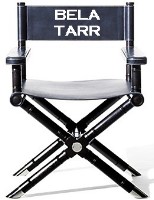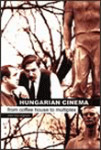

Jonathan Rosenbaum article on the films of Bela Tarr
Director - Filmography and DVDBeaver links:
The Man from London (2007), Werckmeister Harmonies (2000), Journey on the Plain (1995), Sátántangó (1994), City Life (1990), Damnation (1988), Almanac of Fall (1985), The Prefab People (1982), The Outsider (1981), Family Nest (1979)
Suggested Reading
(CLICK COVER or TITLE)
Hungarian Cinema: A Concise History
by John Cunningham
A film festival giant, with a near mythical reputation amongst cinephiles in France and the United States, Hungarian master Béla Tarr is a filmmaker of astounding visionary ability. His body of work is often categorized into two phases, his early Cassavetes influenced studies into social realism, and his later metaphysical work, where he earned a name for himself as a master stylist. Tarr often uses non-professional actors, whom he films consistently at odds with their environment, be it the cramped interiors of an apartment or the gloomy rain-soaked streets of the countryside. It was with the completion of his masterpiece in 1994, the seven-and-a-half hour film Satantango, that Tarr would gain international recognition. This was the film that many of the trademarks that have come to characterize his work reached their apex--extremely long, expertly choreographed takes, moody soundscapes of distant bells, and stark black-white photography set in a world of gray skies and populated by lonely, wandering men and stray dogs. It is in this bleak atmosphere, and a fruitful collaboration with novelist Laszlo Krasznahorkai, that Tarr manages to infuse a great deal of dark humor, with an occasional hint of murky surrealism, to make his, some of the most harrowing and unforgettable films being produced today. - Adam Lemke
